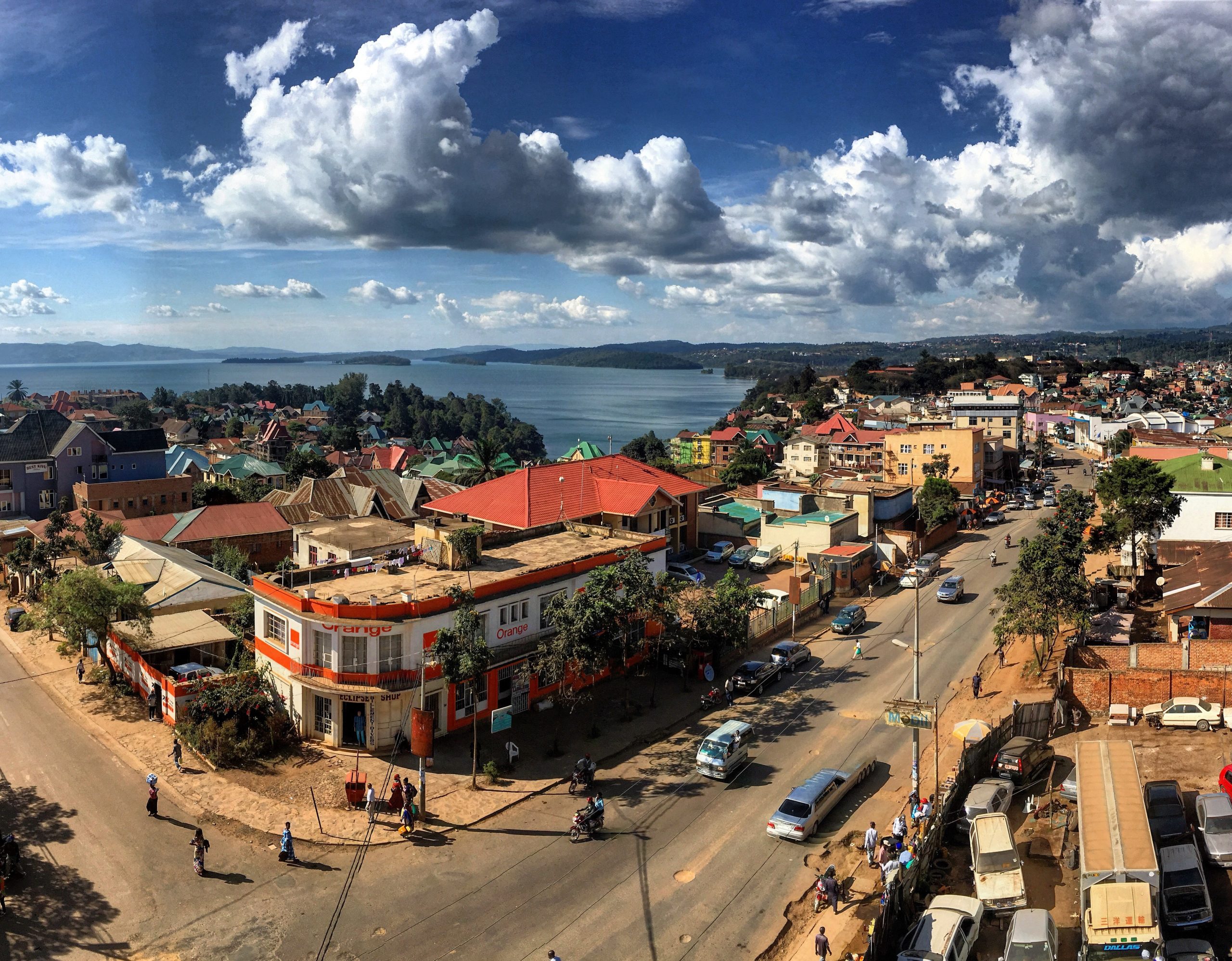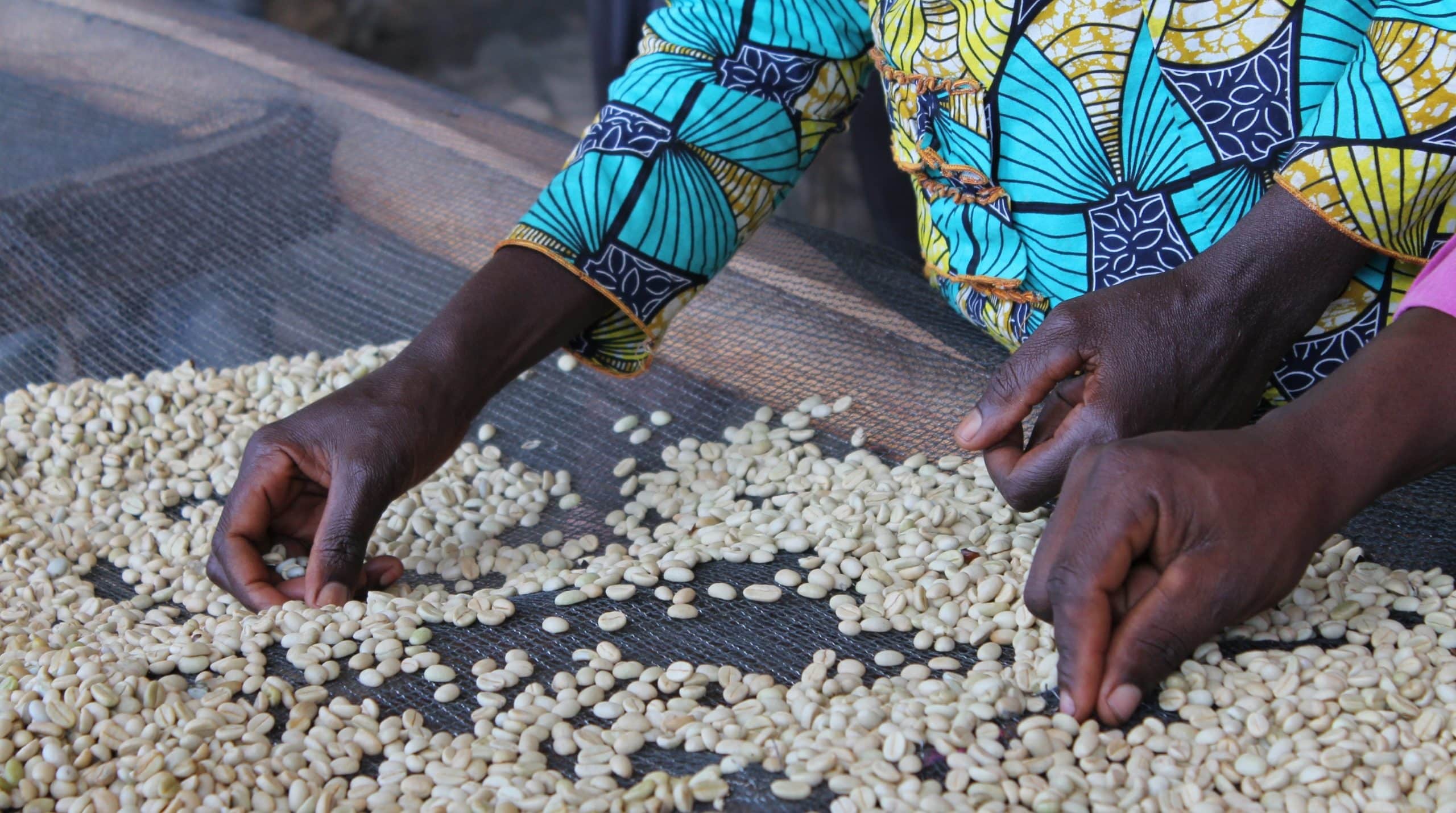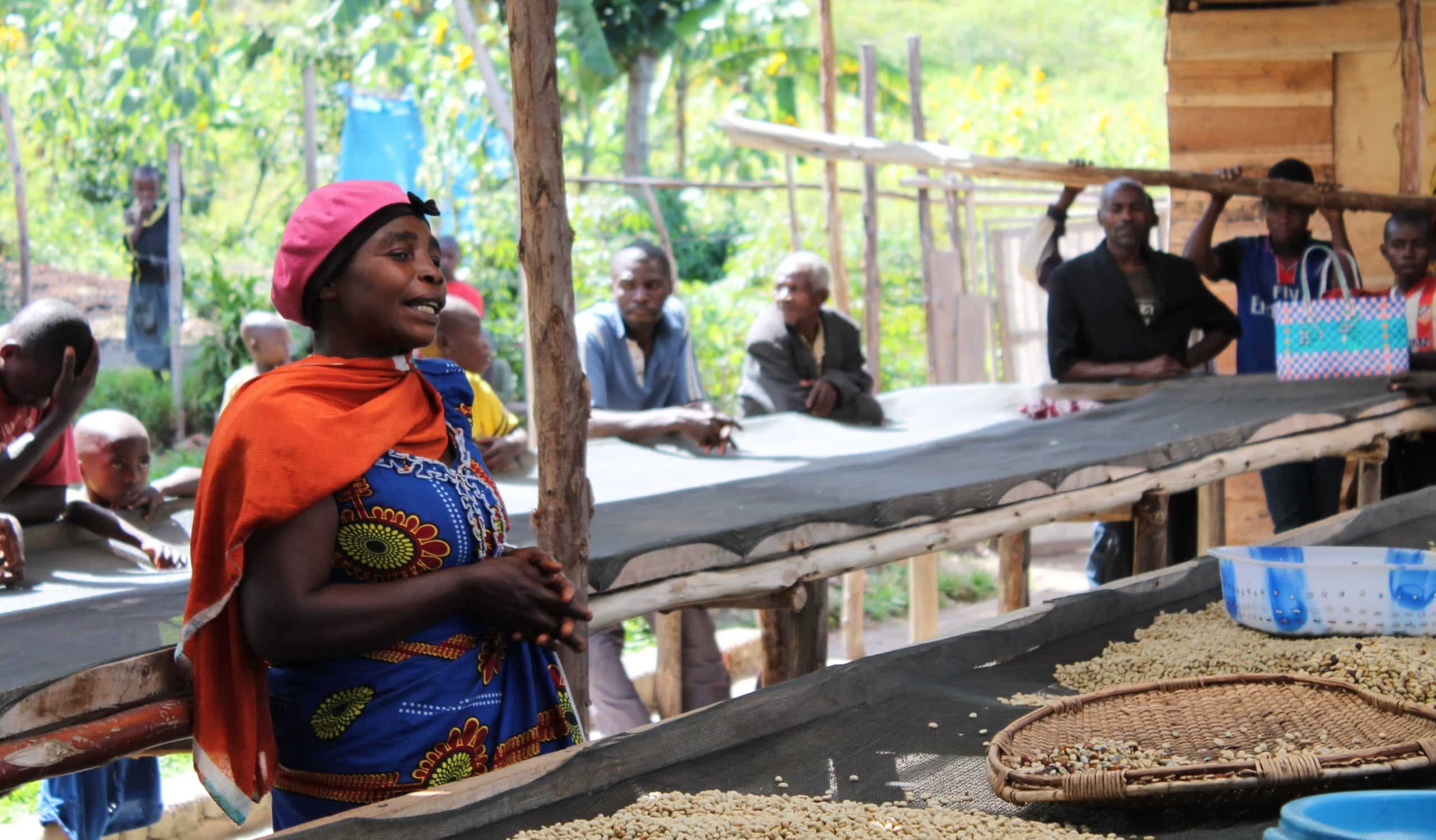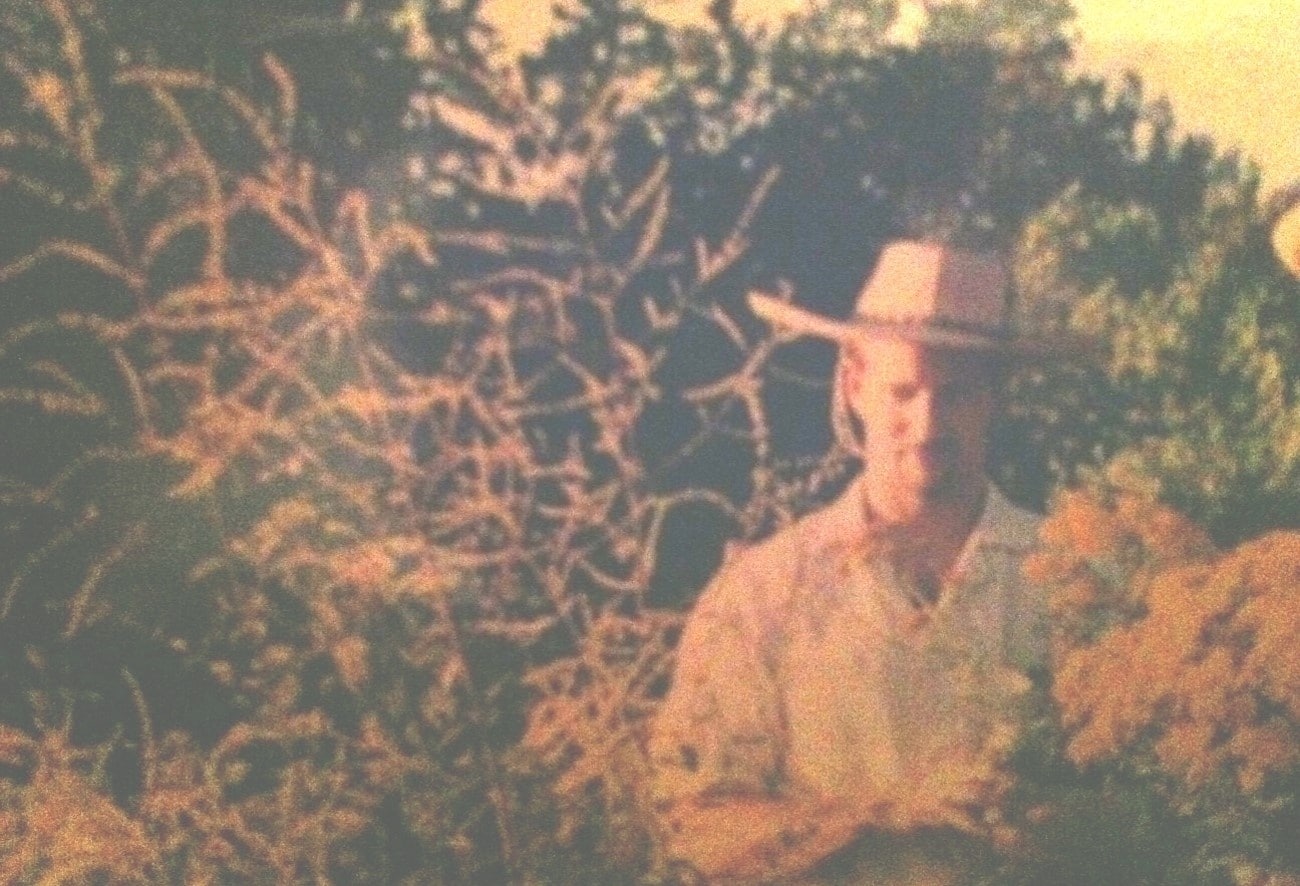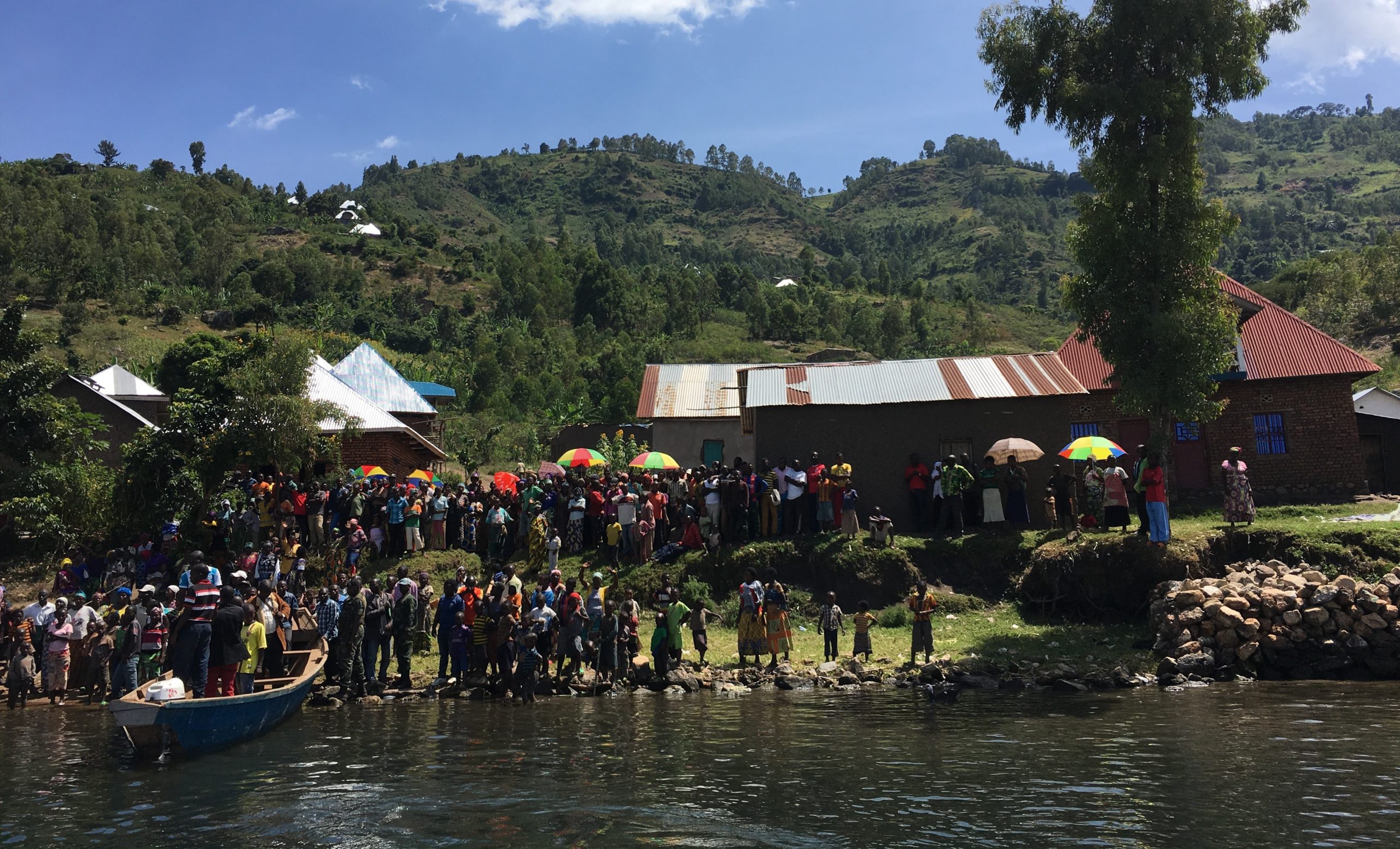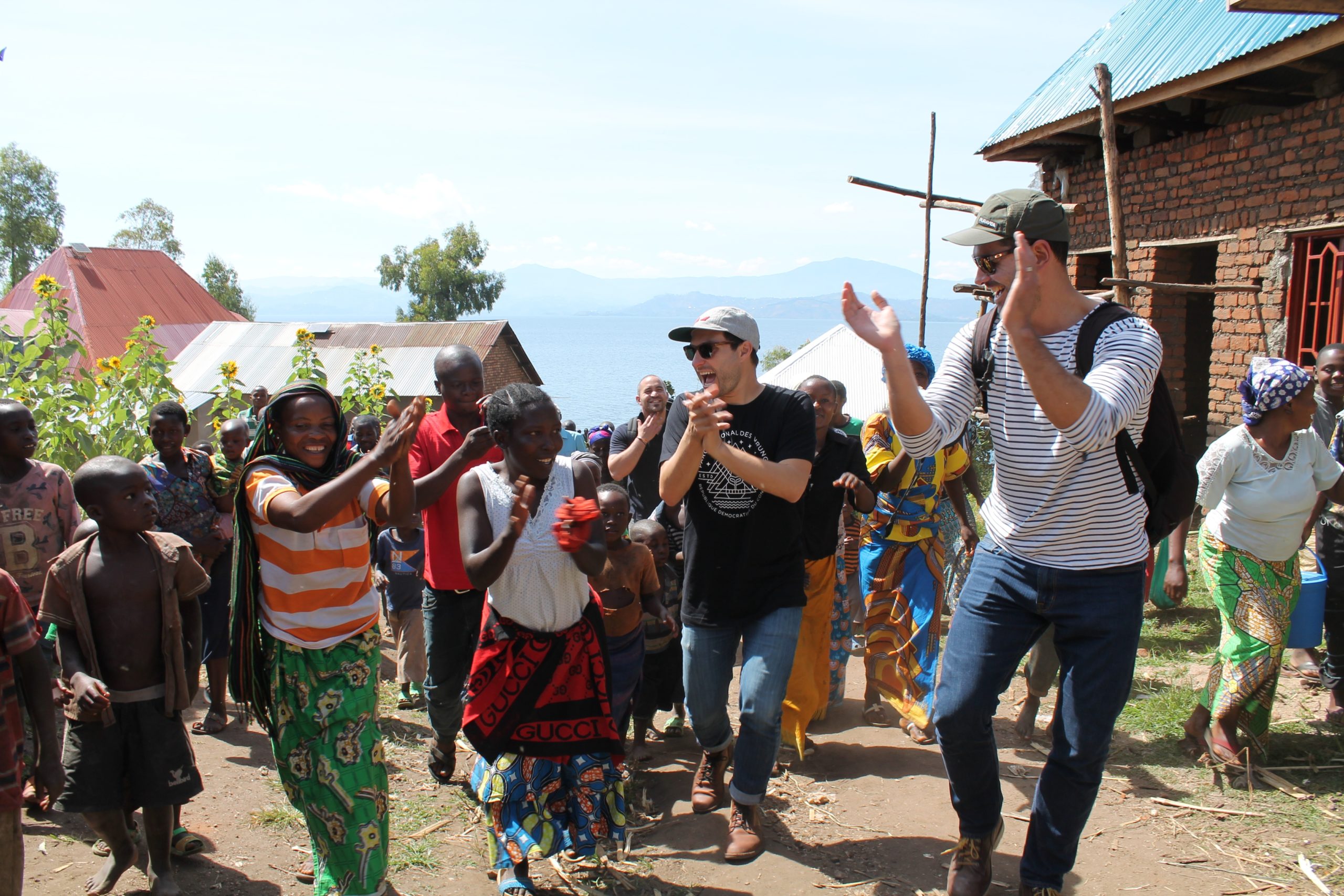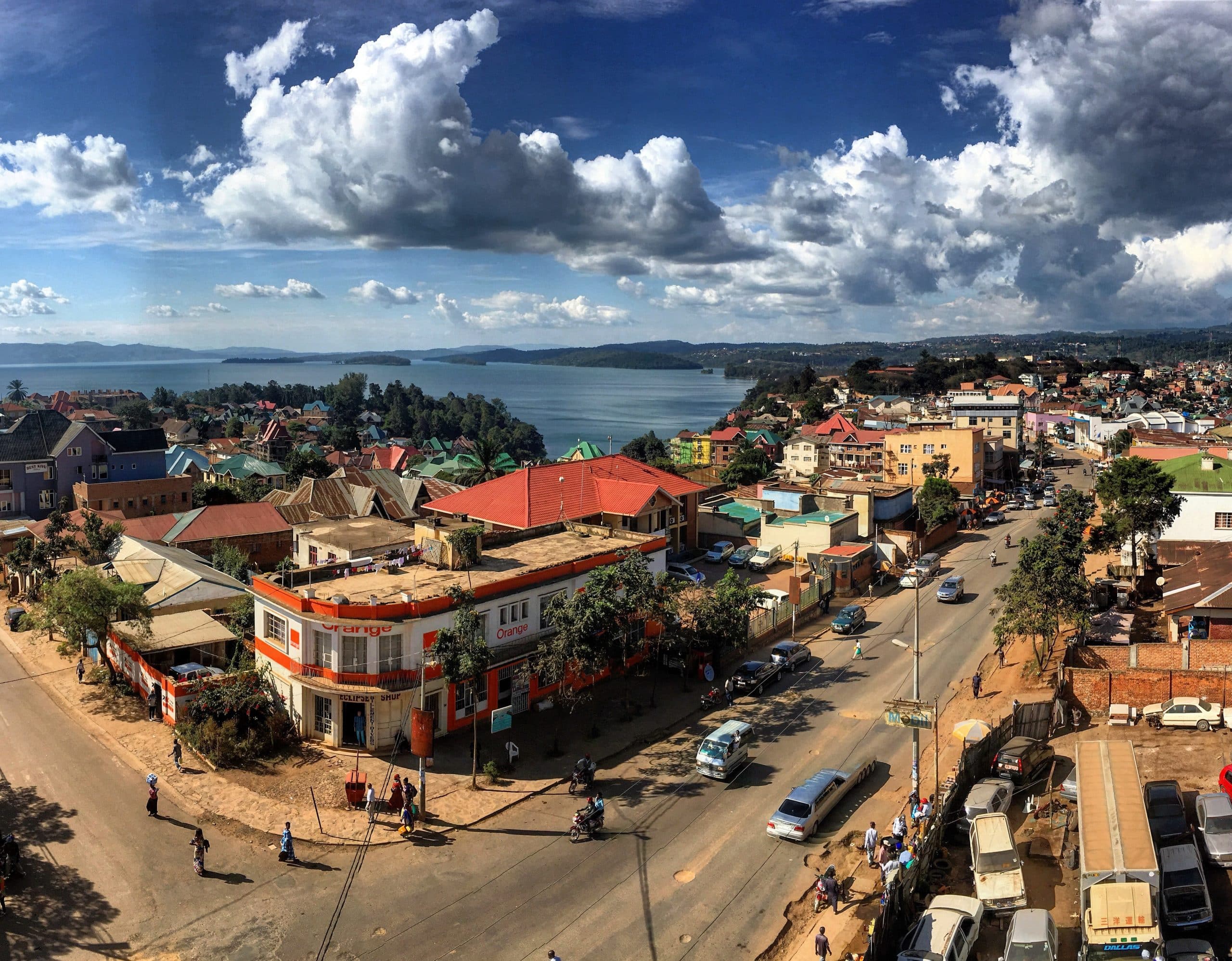
On a warm, breezy day in the sleepy Congolese city of Bukavu, I find myself on the back of a boda-boda motorcycle taxi, puttering down the unpaved city streets on my way to the National Office of Coffee. Down every alleyway I catch glimpses of the morning sun glimmering off of the calm waters of Lake Kivu. It’s the first day of “Saveur du Kivu,” a celebration of the reemergence of specialty coffee in the Democratic Republic of Congo (DRC) and the country’s premier coffee event. I’m here representing Root Capital, which happens to be the largest coffee lender in the region.
The twenty-year civil war that ripped through the Kivu provinces of Eastern DRC devastated both the region and its farmers. This is the Congo that you saw on the news — the country where it seemed like nothing would ever go the right way for its people. Yet visionary leaders in the coffee industry saw another path forward. In partnership with these leaders, Root Capital began lending in DRC in 2013 with the purpose of accelerating the revival of the country’s coffee industry, hoping to unlock the potential of a region scarred by decades of conflict. Since 2013, we have disbursed over $13.5 million to seven coffee businesses that together provide higher, stable incomes for over 23,000 smallholder coffee farmers.
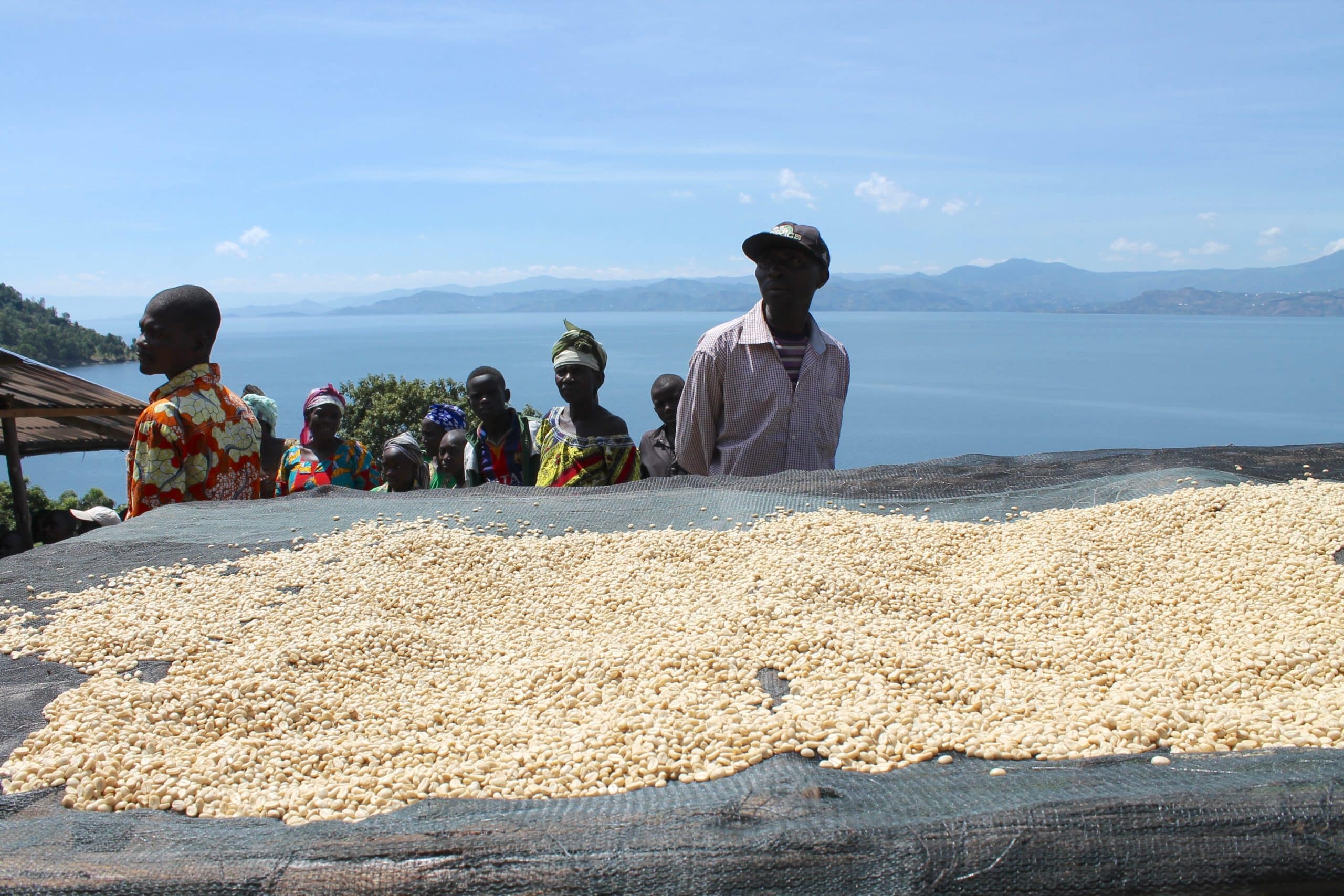
Saveur du Kivu is one of the only opportunities that coffee professionals working in the DRC have to share their expertise and work together to build a sustainable coffee industry in the country. I’ve been fortunate enough to attend several such conferences around the world since I started working in smallholder agriculture over a decade ago. But the energy at this event was unique.
For three days, representatives from farmer organizations, international NGOs, the Congolese government, and coffee buyers pay rapt attention to every presentation and workshop. Representing the only banking institution at the event, my role is to present on risk, financial fundamentals, and access to capital. Whether wearing a tailored suit or a dress made of brightly colored kitenge cloth, every person in the room is dressed elegantly, with a flair that seems particular to the Congo. The energy in the room is palpable, but the only sounds I hear are the soft scratch of pens on paper and babies quietly cooing.
The coffee professionals in the audience are as passionate, intelligent, and dedicated as any I’ve ever spoken to. The only thing they lack is the enabling environment that will help them succeed. As the industry is still young, this may be the only such event they get to attend — they know that they can’t get the information shared here anywhere else.
Root Capital founder and CEO Willy Foote, Chimalapas jungle, Mexico, 1999.
Eighteen years ago, our founder and CEO Willy Foote found himself in a similar situation. Deep in the Chimalapas jungle of southern Mexico, Willy met with an association of vanilla growers, who had banded together in hopes of raising incomes for several dozen indigenous families in the region. The setting was idyllic — sun filtering through the lush forest canopy, with a backdrop of squawking parrots and flowing water from a brook in the background.
In contrast to its physical beauty, this rainforest community faced ugly challenges. Lack of access to markets, proper financing, or training prevented these farmers from earning the incomes they deserved for their hard work, with families earning so little that they struggled to get enough to eat. The temptation to participate in the far more lucrative drug trade — for which there was certainly a market, both national and international — was present at every turn.
Looking out at that community of farmers and indigenous leaders, Willy acknowledged their challenges. But he also recognized the potential that existed when farmers worked together. And it was on that potential that Root Capital was founded.
Eighteen years later and halfway around the world, I understand what it must have felt like for Willy to stand alongside those farmers under the canopy of the Mexican rainforest.
Looking into the eyes of the business leaders in the room, I see the same steely determination that I imagine Willy saw in the eyes of those vanilla farmers in Chimalapas. Violence, food insecurity, extreme poverty — the Congolese people have faced demons that I can’t even begin to comprehend. The DRC is a difficult environment, and the loans we make here will never be the easiest or the most profitable. Virtually no one else is working with these groups. But we’re going to keep doing so — because we’ve seen time and time again how with just a little support, businesses can overcome the most daunting obstacles to create seemingly limitless opportunities in their communities. Unlocking the potential of these businesses is the very reason we exist.
Farmer-members of a coffee cooperative welcome us ashore.
The day after I give my presentation, a few of the other Saveur du Kivu participants and I cruise across Lake Kivu to visit a coffee farmers’ association accessible only by boat. Before the faces of the farmers even float into view, their singing and clapping soars across the water. We draw closer, and their faces drift into focus. With mountains rising above them and waves lapping at their feet, they dance, welcoming us to the shore.
I’ve spent the greater part of my adult life bumping along backroads from Senegal to Sumatra — and as I dance, laugh, and lend my voice to this impromptu celebration on the shores of Lake Kivu, I remember why.
It’s because down each of those backroads is a business that’s changing people’s lives, one farmer at a time.
Pioneering businesses in the Democratic Republic of the Congo raise incomes for farmers and lift up their communities, even as they reckon with ongoing violence. Read more stories about how thriving rural businesses promote peace in post-conflict regions around the world.
As of July 25, 2017, this post has been edited from the original version.
